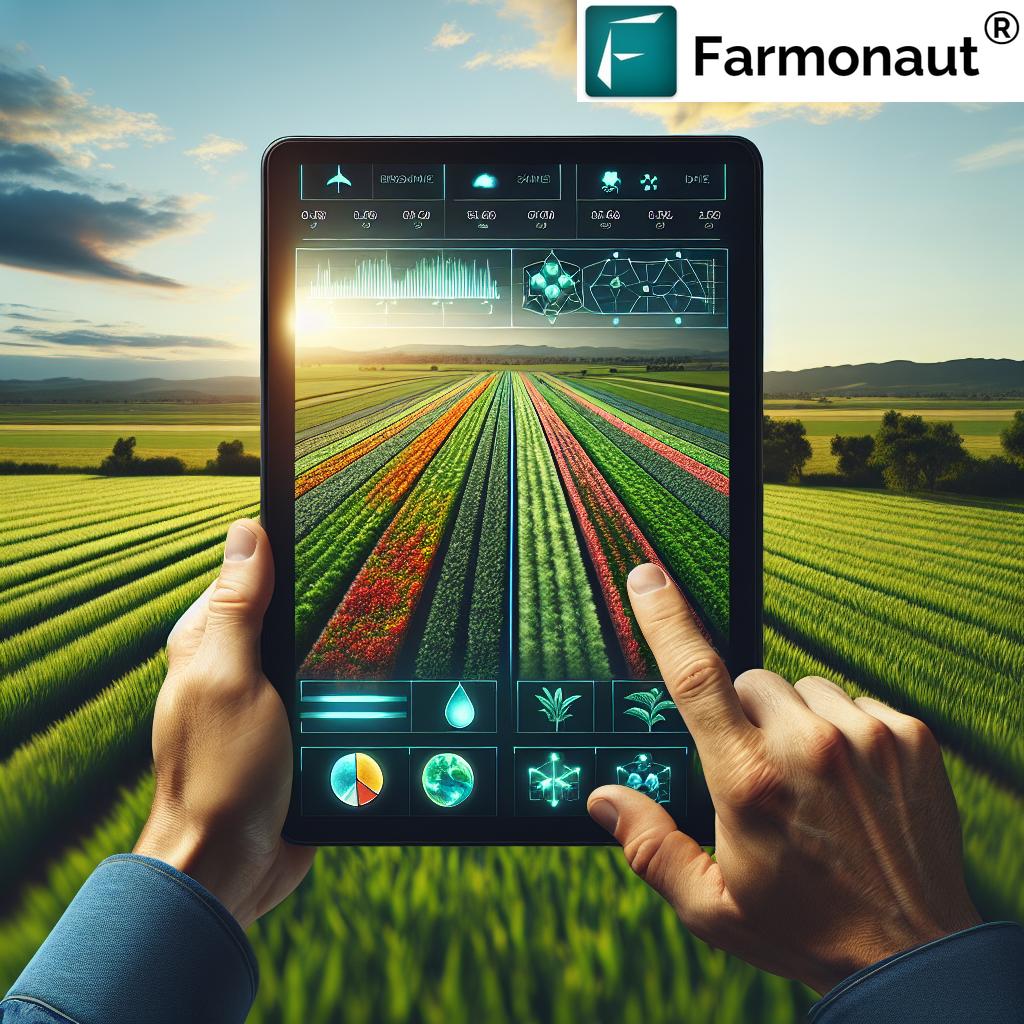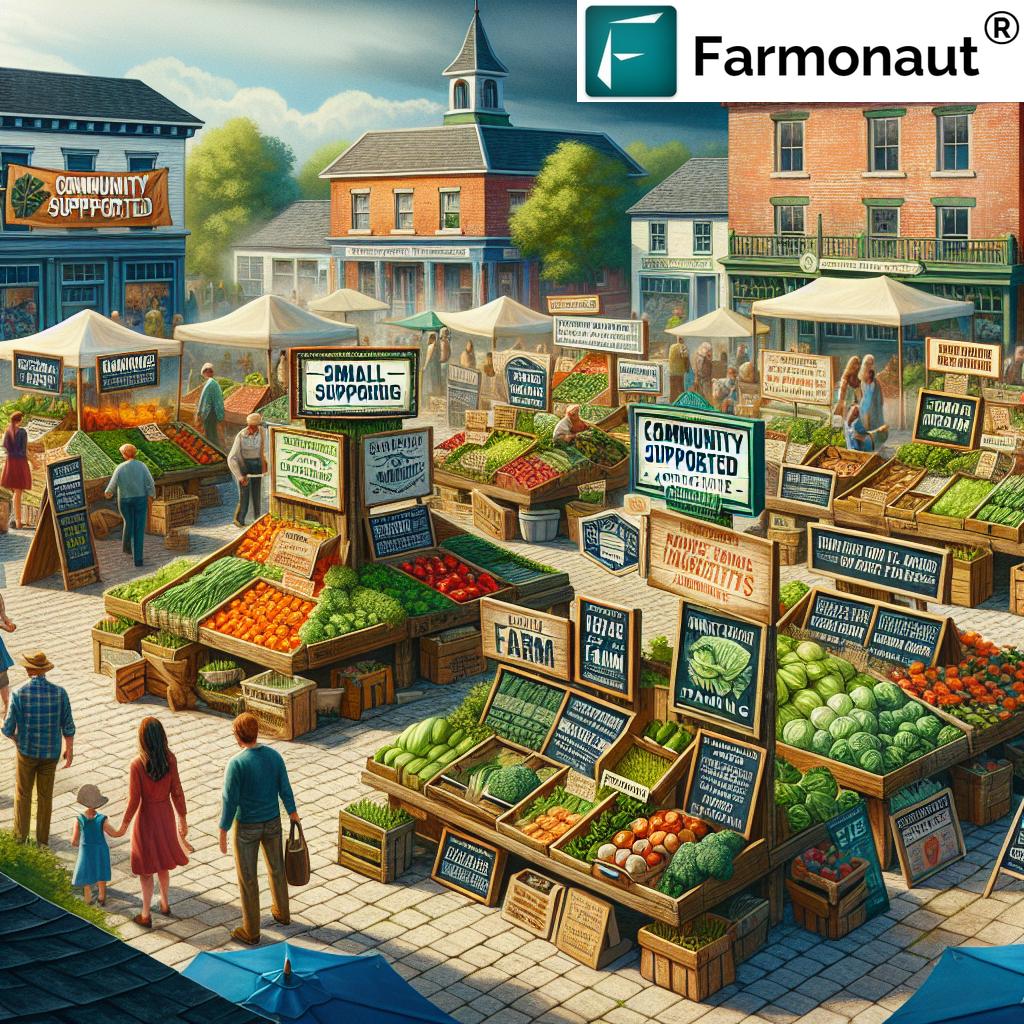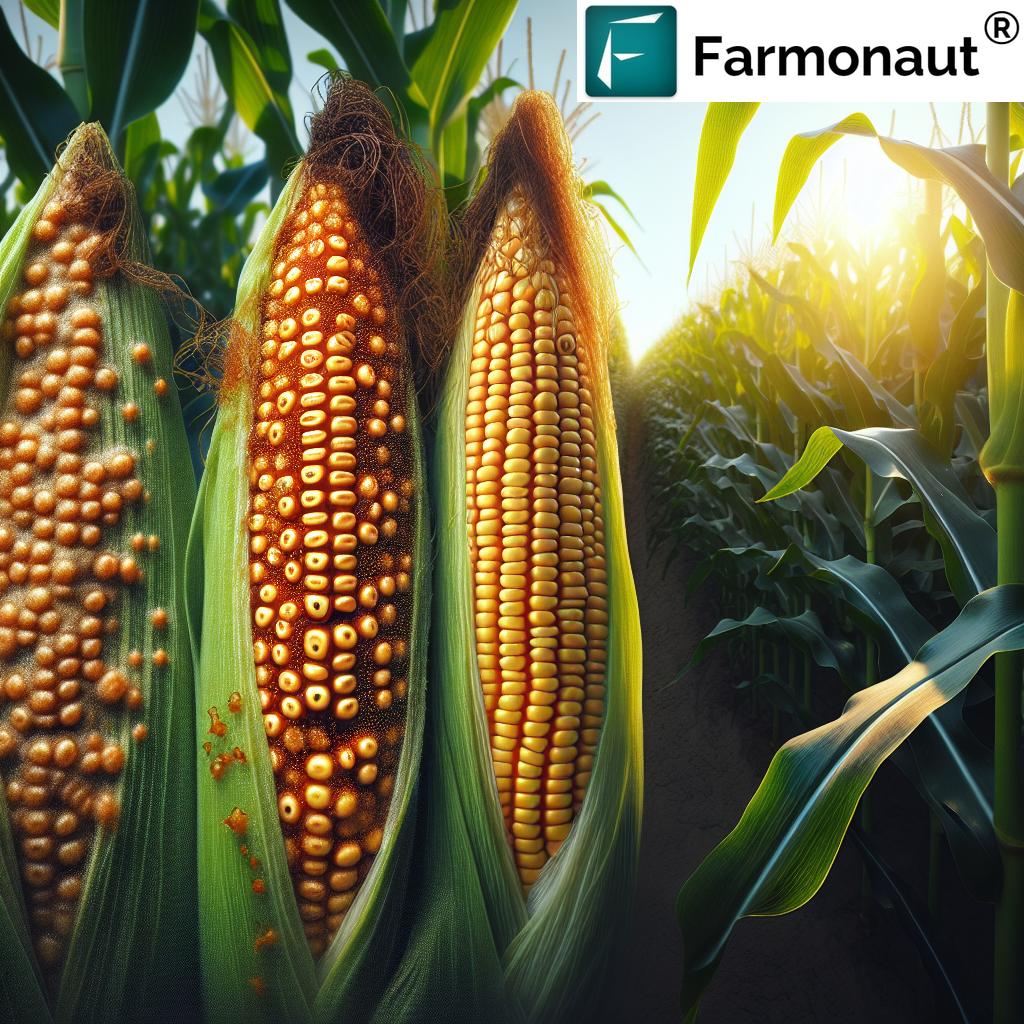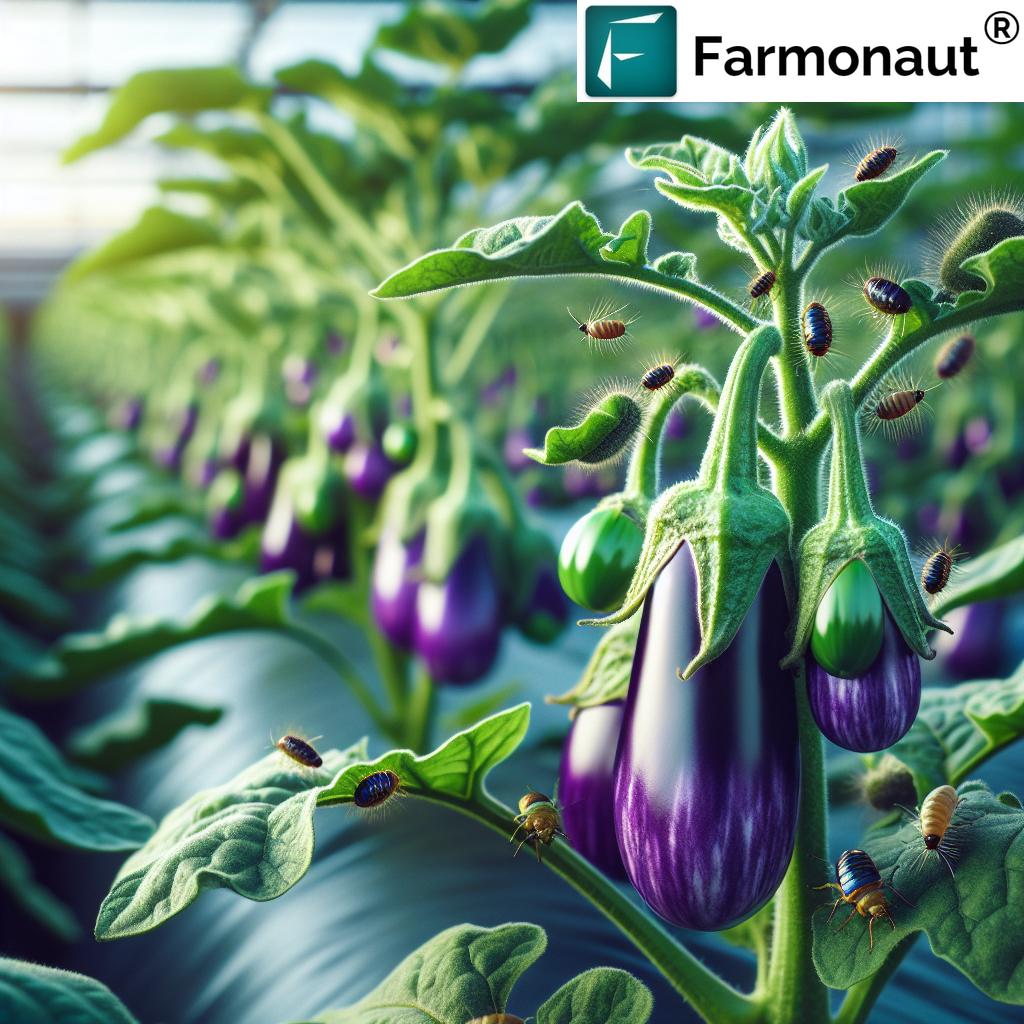Top Agriculture Careers 2025: Farming & Ag Jobs Guide
“By 2025, over 60% of new agriculture jobs will require advanced tech skills, reflecting rapid industry innovation.”
Agriculture Careers in 2025: Overview & Opportunities
Agriculture remains a vital sector globally, sustaining human life by providing food, raw materials, and employment to millions. As we move into 2025, careers in agriculture are evolving rapidly—driven by technological advancements, environmental challenges, and shifting consumer demands. If you’re considering a future in this field, understanding the diverse opportunities within agriculture, farming, and related industries is essential for making informed decisions. Today’s agriculture careers don’t just involve traditional farm work—they encompass high-tech roles, sustainable practices, and entrepreneurial ventures, reflecting the dynamic and innovative nature of the sector.
The Scope and Future of Careers in Agriculture
Agriculture farming careers have traditionally been associated with manual labor—planting, harvesting, and tending to crops. However, the scope of careers for agriculture today encompasses a wide range of professions beyond the farm gate. From agronomy, agricultural biotechnology, and farm management to food science, agricultural engineering, conservation, and agribusiness, agriculture careers extend far into various related industries.
This evolution is due to several emerging trends:
- Technology integration for efficient, data-driven farming
- Heightened sustainability and environmental awareness
- Shifting consumer demands for organic and sustainably produced food
- Growth of niche markets (e.g., sustainable, carbon-positive produce), increasing the need for innovative management and traceability
- Increasing global demand for food, due to population growth and environmental pressures
Why Are Careers in Agriculture Expanding Rapidly?
The answer lies in the sector’s transformation: Modern agriculture involves advanced machinery, artificial intelligence (AI), satellite data analysis, automation, biotechnology, and resource management systems. These innovations open doors for new skills and professions. Careers in farming and agriculture now require a blend of agricultural science, environmental awareness, technology literacy, and business acumen.
Emerging Trends & Technologies Shaping Agriculture Careers
Modern agriculture careers are increasingly intertwined with technology. Let’s break down the primary trends and technologies that are revolutionizing careers in agriculture for 2025 and beyond:
- Precision agriculture: Using GPS, drones, IoT sensors, satellite imagery, and data analytics to optimize crop yields and minimize waste. This leads to growing demand for careers in data analysis, equipment development, and systems management.
- Biotechnology: Genetic modification and CRISPR technologies enable scientists to develop pest-resistant or drought-tolerant crops, directly addressing food security and climate change issues.
- Automation and farm robotics: Modern farm equipment involves automated controls, making roles in engineering, programming, and maintenance essential.
- Big data and satellite technology: Farm management and environmental monitoring leverage platforms (such as ours at Farmonaut) that process huge volumes of satellite data for real-time insights.
The future of agriculture is data-driven and interdisciplinary. Professionals working with machine learning, satellite analytics, AI advisory systems, and blockchain-based traceability (learn about Farmonaut Traceability) are transforming everything from crop management to food distribution. Careers for agriculture graduates now include:
- Satellite image analysts
- Precision farming specialists
- IoT integrators and drone pilots
- AI-based advisory consultants
- Blockchain implementation experts
- Environmental impact analysts (e.g., carbon footprinting roles)
Localized, data-centric approaches make agriculture farming careers both high-tech and field-based, offering diverse opportunities for growth, skills development, and sustainability impact.
Examples of Innovative Agriculture Technologies Shaping Careers
- Drones for Crop Monitoring: Drone operators capture high-resolution imagery, monitor crop health, and help predict yields and pest outbreaks. These roles are rapidly expanding.
- IoT Sensors & Automated Irrigation: Sensors track soil moisture and environmental data, enabling automated irrigation management that saves water and boosts efficiency.
- Artificial Intelligence (AI) Advisories: AI-driven platforms (e.g., Farmonaut’s Jeevn AI system) deliver real-time, field-specific recommendations to maximize productivity and minimize waste.
- Blockchain Traceability: Ensures supply chain transparency—an essential aspect for farm-to-fork traceability and food safety.
- Vertical Farming & Controlled Environment Agriculture: Indoor operations use technology to produce high-quality crops year-round, supporting urban food security and creating new, tech-centric career roles in agriculture sector.
“Sustainable agriculture roles are projected to grow by 15% by 2025, driven by global demand for eco-friendly farming.”
Sustainability and Environmental Focus
The growing focus on sustainability within agriculture is reshaping career pathways. Sustainable agriculture involves integrated practices that protect ecosystems, promote biodiversity, and safeguard the future productivity of land and water resources.
Key career opportunities in this area include:
- Environmental consultancy: Advising farms and agribusinesses on eco-friendly practices and regulatory compliance.
- Soil science and resource management: Assessing soil health, fertility, and implementing sustainable management strategies.
- Agroforestry specialists: Combining trees, crops, and livestock for resilient and productive land use systems.
- Carbon footprint analysts: Evaluating and reducing environmental impact of agriculture operations. Explore Farmonaut’s Carbon Footprinting tools for efficient monitoring.
- Organic farming experts: Supporting the rise of organic crop production, certifications, and market development.
As global demand for eco-friendly food rises, careers in agriculture increasingly emphasize:
- Resource conservation
- Low-impact farming systems
- Compliance with environmental regulations (efficient fleet and resource management)
- Collaboration with technology providers to implement sustainable solutions
Farm Management & Agribusiness in 2025
Modern farm management is a sophisticated profession that blends agricultural knowledge with business strategy, technology adoption, and workforce leadership. The agribusiness sector covers a wide range of activities beyond crop production, specifically:
- Supply chain management: Ensuring food safety and timely delivery through advanced logistics and traceability—a growing area due to blockchain innovations. Learn more about traceability solutions.
- Food processing and distribution: Developing, packaging, and marketing food products with an emphasis on safety and consumer trends.
- Farm financial planning: Budgeting, investment management, and risk analysis, including satellite-based crop verification for insurance and loans. Explore Farmonaut Crop Loan & Insurance solutions.
- Human resource management: Overseeing teams, labor allocation, and training for high-tech operations.
- Entrepreneurial ventures: Niche farming, agritech startups, and agro-admin management platforms for large-scale farm administration.
With the proliferation of high-tech equipment, agronomic software, real-time analytics, and advanced machinery, management roles require data literacy, strong communication skills, and the ability to adapt to emerging technology trends.
If you are looking for tools to manage large farm operations, try Farmonaut’s Large Scale Farm Management platform—it streamlines all aspects of agricultural operations through satellite monitoring, field logging, and automated reporting.
Top Agriculture Careers 2025: Roles, Skills, and Growth Outlook
Below is a comparative table of the most in-demand agriculture careers for 2025, focusing on technological and sustainability-oriented roles. This table highlights the required skills, growth rates, and salary outlook—enabling you to compare and evaluate evolving career opportunities in the sector and make informed choices for your professional journey.
| Career Title | Description | Required Skills | Estimated Growth Rate (%) by 2025 | Avg. Annual Salary (USD, est.) |
|---|---|---|---|---|
| Precision Agriculture Technician | Operates and maintains GPS, IoT sensors, and data-driven equipment for optimized crop management. | Tech literacy, equipment calibration, GIS skills, data analysis, troubleshooting, adaptability | 28% | $52,000 |
| Agricultural Data Analyst | Interprets large datasets from satellite imagery, sensors, and field trials to guide decision-making for farms and agribusinesses. | Data science, statistical analysis, machine learning, communication, problem-solving | 32% | $64,000 |
| Vertical Farming Specialist | Designs, manages, and optimizes controlled environment agriculture systems for urban food production. | Hydroponics, systems engineering, environmental control, IT skills, biology | 25% | $58,000 |
| Drone Operator for Crop Monitoring | Deploys and maintains agricultural drones for mapping, pest detection, and irrigation management. | UAV operation, image processing, regulatory compliance, field mapping, tech troubleshooting | 30% | $55,000 |
| Sustainable Agriculture Consultant | Advises on implementing eco-friendly practices, complying with regulations, and sustainability certifications. | Environmental science, sustainability, regulatory expertise, communication, data management | 22% | $60,000 |
Education and Skills Required for Agriculture Careers
With the agriculture sector growing more complex each year, education and skills expectations are evolving, especially for careers in farming and agriculture in 2025. Most high-growth roles require a blend of formal education, technical proficiency, and soft skills. Here’s what you need to succeed:
- Formal Qualifications:
- Bachelor’s or Master’s degrees in Agricultural Science, Engineering, Environmental Science, Data Analytics, Food Science, or Agribusiness Management.
- Short-term certifications: Precision agriculture, GIS, drone operations, sustainability practices.
- Technical Skills:
- Data analytics and interpretation (e.g., Farmonaut Satellite & Weather API for real-time agricultural data)
- Technology literacy—familiarity with AI advisory systems, GPS, satellite imagery, and automated controls
- Understanding of blockchain, machine learning, and IoT integrations
- Experience with resource management tools for fleet or large-scale farms (Fleet Management Solutions)
- Essential Soft Skills:
- Problem-solving, critical thinking, and adaptability in a fast-evolving industry
- Strong communication and collaboration—often working in cross-disciplinary, multicultural teams
- Attention to detail, especially in data management and environmental stewardship
- Work Experience:
- Internships or fieldwork are highly valued by employers.
- Exposure to both hands-on and remote (digital) agriculture management systems
How to Stay Ahead in Agriculture Farming Careers (2025 and beyond):
- Embrace ongoing education: Take online courses, attend workshops, and pursue advanced certifications as the sector evolves.
- Develop digital skills: Familiarize yourself with data platforms, AI tools, and remote sensing (check API developer docs for integration opportunities).
- Network with professionals in the field to discover emerging roles and job openings.
- Stay informed: Read industry publications, watch thought leadership videos, and engage in active discussions.
Farmonaut: Advanced Technology Shaping the Future of Agriculture
As we look towards 2025 and beyond, it is impossible to discuss agriculture careers without highlighting the transformative role of technology platforms. At Farmonaut, we are dedicated to empowering farmers, agribusinesses, governments, and researchers globally through accessible, satellite-driven insights and innovative digital solutions.
- Satellite-Based Monitoring: Leveraging high-resolution multispectral imagery, we provide vegetation health (NDVI), soil condition, and structural integrity insights—enabling data-driven resource management for agriculture, mining, and infrastructure.
- AI Advisory Systems: Our Jeevn AI tool delivers real-time recommendations—from weather forecasts to tailored farming strategies. This dramatically boosts operational efficiency and productivity.
- Blockchain-Based Traceability: We enable supply chain transparency and fraud prevention, building trust for consumers and stakeholders in global agriculture systems.
- Environmental Monitoring: Real-time carbon footprint tracking allows for compliance with regulations and adoption of sustainable practices, aligning with global demand for sustainability.
- Scalable, Subscription-Based Model: Our tools are accessible via web, iOS, Android, or API, offering modular, cost-effective solutions for individuals, businesses, and governments.
As technology continues to redefine agriculture, the jobs of tomorrow will require expertise in AI, data science, blockchain, satellite analytics, and sustainability frameworks. If you’re eager to shape the future of global agriculture, developing skills in these areas will be your competitive edge.
Future Outlook: Evolving Opportunities in Agriculture Careers
The evolving nature of agriculture careers means the next few years will be transformative for the sector. According to the United Nations, global food demand is expected to rise by 50% by 2050. This surge will call for more highly skilled professionals in agriculture, food systems, and sustainable management.
Climate change continues to challenge agriculture sectors globally; adaptation and resilience become essential career drivers:
- Demand for experts in drought-tolerant crops and climate-smart farming practices will escalate.
- Experience with environmental monitoring and impact assessment is critical (explore Farmonaut’s carbon footprinting for sustainable farm operations).
- Consumer demand for organic, traceable, and responsibly grown food continues to skyrocket, increasing opportunities across the agricultural value chain.
- Careers in technology, data science, and sustainability will become increasingly essential to the future growth of the sector.
Ultimately, if you are passionate about technology, science, environmental protection, and food security, there has never been a better time to consider a career in the evolving agriculture sector.
FAQ: Agriculture Careers 2025
- 1. What are the highest-paying agriculture careers in 2025?
-
Data-driven roles (such as Agricultural Data Analyst, AI consultant, and Sustainability Consultant) are among the top earners, typically paying between $60,000–$100,000 USD annually, depending on region and specialization.
- 2. Do I need a tech background to enter agriculture careers now?
-
Many of the fastest-growing agriculture careers—especially in precision farming, remote sensing, drone operations, and data analysis—do require technology skills. However, the industry values diverse experience and offers on-the-job training and certifications for newcomers.
- 3. Which skills are ‘future-proof’ for agriculture farming careers?
-
Data literacy, environmental science, knowledge of AI/automation, and sustainability practices are crucial for future-oriented agriculture roles.
- 4. Are sustainable and organic farming jobs really growing?
-
Yes. As noted, sustainable agriculture roles are projected to grow 15% by 2025, driven by global climate and consumer demands.
- 5. How is Farmonaut helping people build careers in agriculture?
-
At Farmonaut, we provide satellite-driven data, AI advice, blockchain-based traceability, and resource management solutions that make agriculture more accessible, efficient, and sustainable for professionals globally. Discover our tools for large-scale farm management to see how digital transformation can impact your career prospects.
Conclusion: Charting a Future-Proof Path in Agriculture Careers
Agriculture remains one of the most critical global sectors, providing food, raw materials, and employment opportunities while adapting to a rapidly changing world. In 2025 and beyond, agriculture careers blend tradition with innovation across fields as diverse as farming, biotechnology, management, data science, and sustainability. Rising demand for smart, sustainable, and secure food systems means professionals with technological literacy, scientific acumen, and environmental focus will drive change and growth.
If you’re considering a career in farming and agriculture or seeking new opportunities in a future-proof sector, focus on developing technical and soft skills, staying current on emerging technologies, and embracing sustainable practices. The opportunities are vast, the sector is growing, and the impact is global.
For more on how Farmonaut can support your career journey with tools and insights, download our web app, or access our API here and read the developer docs. Step confidently into the future of agriculture careers!












